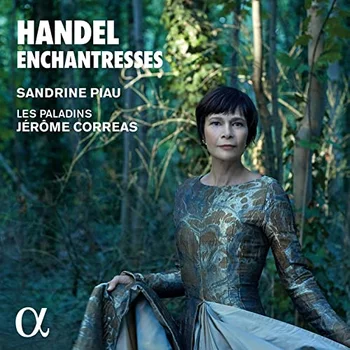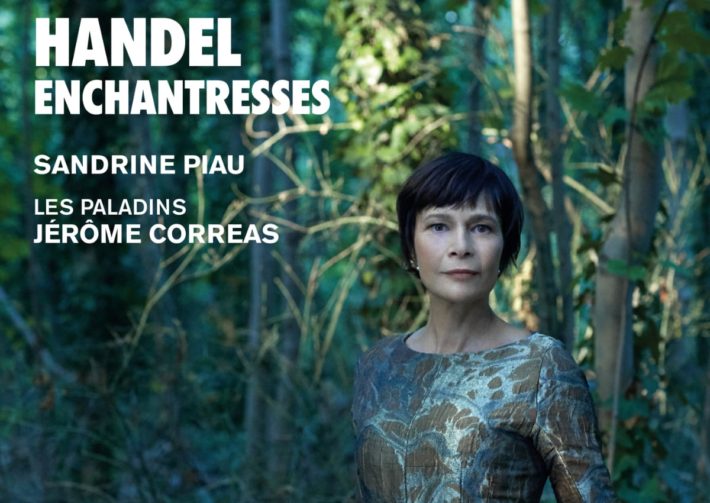It is always wonderful to hear a new Sandrine Piau recital, especially one featuring works by Handel. His music has proven particularly fertile ground for Piau, who has 25-some albums of his music readily available. This is also her fourth collaboration with Les Paladins and Jérôme Correas, and the performances heard here suggest it is an exceptionally fruitful and cooperative partnership.

Piau’s vocal technique is as impressive as ever: the most difficult coloratura passages are managed with disarming evenness and accuracy. Her breath control seems limitless, as does her ability to float a phrase. If perhaps there is a bit less luster in the highest register, ample compensation is found in an increased variety of luminous colors and a rock-solid lower register, displayed to thrilling effect in the opening track “Scherza in mar la navicella” from Lotario. And how naturally Correas and his players provide Piau room for her many embellishments. The energy and musicality of Piau’s singing is fully matched in the orchestral playing. One senses a deep connection and shared vision between these musicians.
In his introductory note, conductor Correas describes the album’s “Enchantresses” theme as repertoire that explores “powerful women confronted with the sting of love, its disappearance or its absence.” It is shrewdly chosen to play to Piau’s strengths as both as singer and actress. Listen to how powerfully she instills that opening aria with defiant anger, or the disarming naïveté she conjures in the opening of “Alla salma infedel” from Alceste (track 7), and the profound pathos brought to “Ah! mio cor” from Alcina (track 8).
I was particularly intrigued to compare Piau’s performance of “Piangero la sorte mia si crudele” from Giulio Cesare, which also features on a recent well received recording of music by Bach and Handel sung by soprano Sabine Devieilhe, chosen as one of our favorite albums of 2021. Devielhe’s sound is creamier and more refined, well matched by the more homogenous orchestral sound of Pygmalion. It is a ravishingly beautiful performance. Yet with Piau there is a greater sense of desperation a rawness of emotion, that proves equally convincing. I also listened to Patricia Petibon, accompanied by the Venice Baroque Orchestra under Andrea Marcon (DG). This is slowest of the three performances, Petibon seemingly intent on wringing every ounce of emotion from every word, which ultimately draws attention away from the music and more towards the performance itself. Of the three, it is Piau’s emotional directness that touches me most deeply.
The playing of Les Paladins is admirable throughout – they clearly see their contribution as integral to setting the mood and emotion of the text. Their performance of the Overture from “Amadigi di Gaula” and the martial mood they establish in the aria “Destero dall’ empia Dite” from the same opera, is especially thrilling. Three other instrument only movements are interspersed within the program to add greater variety. Two movements from the A minor Concerto Grosso (op. 6) are played, the excellence of which makes one wish room had been found for the remaining movements – a small disappointment.
The recording is excellent, achieving a completely natural balance between voice and orchestra, with just enough room ambiance to warm the overall sound without sacrificing clarity. The pungency of this period ensemble (a very different tonal aesthetic than what Pygmalion offers on the Erato recording referenced above) is caught in full technicolor. We seem to be living in a golden age of impressive French sopranos, but no one is finer in this repertoire than Piau, and this special partnership has produced a recording of real distinction – warmly recommended.
Recommended Comparisons
Handel – Enchantresses
Sandrine Piau – Soprano
Les Paladins
Jérôme Correas – Conductor
Alpha, CD 765



















